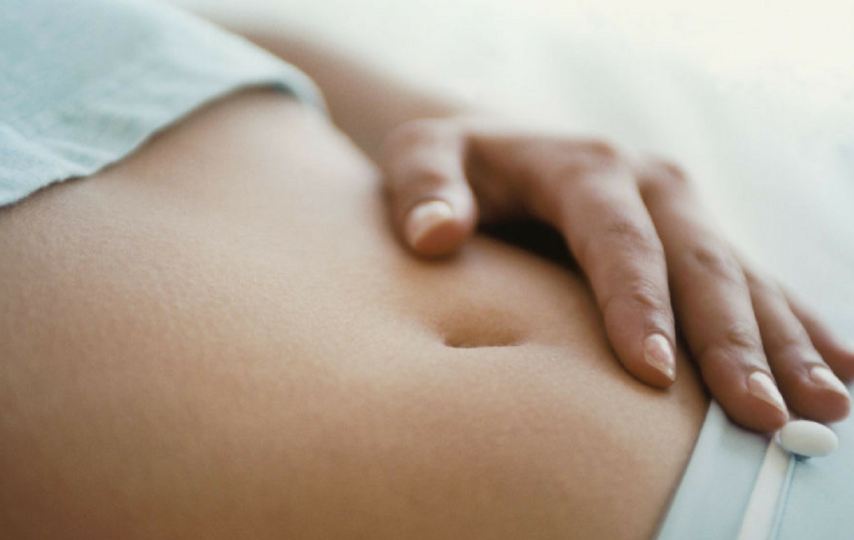Polycystic ovarian syndrome or PCOS is one the most common endocrinal disorders in females of reproductive age. According to the National Institute of Health (NIH), 4-10% of women of reproductive age suffer from PCOS. It is also a common cause of treatable infertility
What is PCOS?
PCOS or Stein-Leventhal syndrome is characterized by hormonal imbalance and its effects on a female’s health. There are 2 different kinds of hormones – male and female hormones. Both hormones are required by the body. In PCOS, the male hormones or androgens are higher than normal, resulting in hormonal imbalance.
Male and female hormones work in sync for a normal menstrual cycle. Follicle-stimulating hormone (FSH) triggers the ovaries to produce a follicle (a sac containing an egg) and luteinizing hormone (LH) stimulates the ovaries to release a mature egg. This release of the egg is known as ovulation. In PCOS, the eggs never mature enough to cause ovulation. Polycystic means multiple cysts and is one of the findings of PCOS. These cysts are nothing but follicles containing an immature egg.
Read More about: Home Remedies For PCOS
Lack of ovulation alters the level of progesterone, estrogen, androgens, LH, and FSH. Level of female hormones, estrogen and progesterone, are lower than usual, whereas male hormones, androgens, are higher than usual. This imbalance disrupts the menstrual cycle.
Signs and Symptoms
The hormonal imbalance causes a group of symptoms of PCOS (syndrome) that affects the ovaries and ovulation and are as follows:
- Cysts in ovaries
- Higher level of male hormones
- Irregular or skipped periods
- Heavy bleeding
- Hirsutism (Excess growth of hair on the face, back, belly, and chest)
- Acne
- Weight gain
- Male-pattern baldness
- Darkening of the skin
Why Does it Happen?
The exact cause of PCOS is not known but is known to be multifactorial in origin. Some of the causes include
- Genetics: PCOS runs in families. Genetic factors can result in abnormally high androgen synthesis in ovarian tissue.
- Insulin resistance: Insulin, a hormone, is produced by the pancreas and is vital for the absorption of glucose by the body cells, maintaining blood glucose levels. In insulin resistance, the body cells become resistant to insulin and cannot utilize glucose properly, and the body’s demand for insulin increases. The pancreas, in turn, produces more insulin to compensate for this need. Extra insulin triggers the ovaries to produce male hormones. 70% of the females with PCOS have insulin resistance.
- Inflammation: Studies prove that inflammation results in higher androgen levels
Diagnosis
PCOS is diagnosed in the presence of at least two of the below-mentioned three symptoms:
- Irregular menstrual cycle
- Cyst in ovaries
- High androgen levels
The following investigations can help in diagnosing PCOS
- Pelvic examination: This involves a vaginal examination by a doctor to check for any growth in the uterus or ovaries.
- Blood tests: Higher-than-normal levels of male hormones is indicative of PCOS. Other blood tests like insulin, cholesterol, and triglyceride levels can be recommended to evaluate the risk of PCOS-related morbidity like diabetes and heart diseases.
- Ultrasound: An ultrasound uses sound waves to detect abnormal follicles and other abnormalities in the ovaries.
Polycystic Ovary Syndrome Treatment
It is divided into the following 2 categories:
- Medical: Estrogen and progestin contraceptive pills restore hormonal balance, aids ovulation, and prevents excess hair growth. Metformin (a drug used to treat diabetes) treats PCOS by improving insulin levels
- Lifestyle and dietary modifications: Losing 5–10% of the body weight is seen to improve PCOS and regulate the menstrual cycle. Weight loss also improves insulin levels and thus reduces the risk of diabetes. Consuming a low-carbohydrate diet is seen to cause weight loss and lowers insulin levels.





